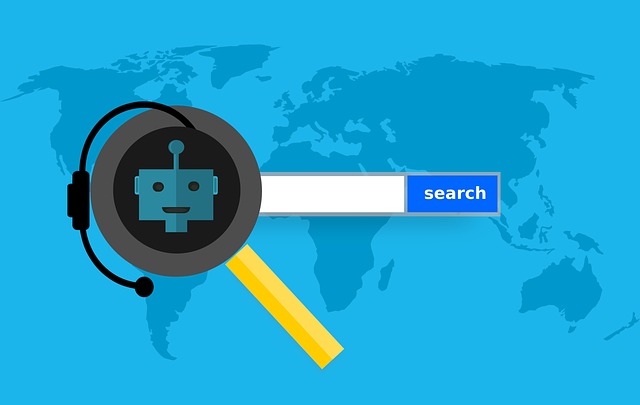In today’s interconnected world, the internet is a double-edged sword. On one hand, it has made our lives easier and more convenient than ever before. However, on the other hand, it has also brought with it numerous threats that can put our personal information and data at risk. One such threat is the Trojan horse – a type of malware that operates by deceiving users into downloading and installing malicious software onto their computers. In this blog post, we will dive into what a Trojan horse is, how it works, its consequences and how you can protect yourself from this insidious cyber attack. So fasten your seat belts as we embark on an informative journey to keep you safe from these digital pests!
What is a trojan horse?
A trojan horse is a type of malicious software that disguises itself as a legitimate program to trick users into downloading and installing it on their computers. Once installed, the trojan can perform various harmful actions without the user’s knowledge or consent.
Unlike viruses or worms, trojans do not self-replicate or spread themselves automatically. Instead, they rely on social engineering techniques such as email phishing scams, fake downloads, or misleading ads to convince users to download and execute them.
Once inside your system, a trojan can steal sensitive information like passwords and credit card numbers, install additional malware, modify system settings to allow remote access by hackers or create backdoors for future attacks.
The name “trojan horse” comes from Greek mythology when the Greeks used a giant wooden horse to deceive the Trojans during the Trojan War. The Trojans took it into their city as a victory trophy only for Greek soldiers hidden inside it to emerge at nightfall and open the gates from within allowing other soldiers outside of Troy’s walls access into the city.
Similarly today’s cybercriminals use this technique by masking their true intent with seemingly harmless programs that could easily lure you in unsuspectingly.
How do trojan horses work?
Trojan horses work by disguising themselves as legitimate software or programs, tricking users into downloading and installing them. Once installed, the trojan horse can execute malicious code that can damage files, steal personal information or provide unauthorized access to a user’s device.
These types of malware often use social engineering tactics such as phishing emails or fake download links to entice users into unwittingly installing them. They may also exploit vulnerabilities in outdated software, operating systems or browsers to gain access to a user’s system.
Once a trojan horse is on your computer, it can perform various actions without your knowledge. It may create backdoors for hackers to remotely control your device, monitor your activities and even install additional malware onto your system.
In addition, trojans are designed to evade detection by antivirus programs through the use of encryption techniques and by modifying their own code. This makes them difficult for traditional security measures to detect and remove.
To protect yourself from these threats, it’s important to keep all software updated with the latest patches and updates. You should also be cautious when downloading files online and ensure you have reputable antivirus software installed on your device at all times.
What are the consequences of a trojan horse?
The consequences of a trojan horse can be severe and damaging. Once the malware infiltrates your system, it can cause various problems such as stealing sensitive information like credit card numbers, login credentials, or personal data.
Trojans can also open backdoors on your computer that enable hackers to remotely access and control your device without your knowledge or consent. This means they could use your computer for malicious purposes like launching DDoS attacks or distributing spam emails.
In addition to compromising security, trojans can slow down the performance of your computer by consuming valuable resources like memory and CPU power. They may also modify or delete important files which could lead to software crashes or even complete system failure.
Moreover, some trojans are capable of installing additional malware on infected devices leading to more damage in the long run. Therefore, it is crucial to take immediate action if you suspect a trojan infection on your device.
The consequences of a trojan horse attack are potentially catastrophic and require proactive measures for protection against them.
How can I protect myself from a trojan horse?
Protecting yourself from a trojan horse is crucial to safeguard your computer and personal information. Here are some tips on how to do it.
Firstly, always keep your antivirus software up-to-date. This will ensure that the latest virus definitions are installed, allowing the software to detect and prevent any trojan horses trying to infect your system.
Secondly, avoid downloading or opening suspicious attachments from unknown sources. Always verify the authenticity of emails before opening them, especially if they contain links or attachments.
Thirdly, be cautious when clicking on pop-ups or advertisements while browsing online. These can sometimes lead you to malicious websites which may try to install a trojan horse on your device.
Fourthly, use a firewall as an added layer of protection for your internet connection. A firewall will monitor incoming and outgoing traffic and alert you of any unauthorized access attempts.
Regularly backup important files so that in case of an attack by a trojan horse where data gets stolen or encrypted by ransomware demands payment for release – you can still recover what matters most!
By following these simple steps above diligently helps protect against Trojan Horse attacks!
Conclusion
Trojan horses are a serious threat to computer security. They can cause significant damage to your system and compromise your personal information. It is important to take proactive measures in protecting yourself from these malicious attacks.
By using reputable antivirus software, updating your operating system regularly, avoiding suspicious emails or downloads, and being cautious when browsing the internet or opening attachments, you can greatly reduce the risk of falling victim to a trojan horse attack.
Remember that prevention is key when it comes to cyber threats. Stay informed and vigilant about potential risks and stay up-to-date with the latest security measures available.
With these precautions in mind, you can feel confident that you are doing everything possible to keep your computer safe from harmful trojan horses.











FIND US ON SOCIALS